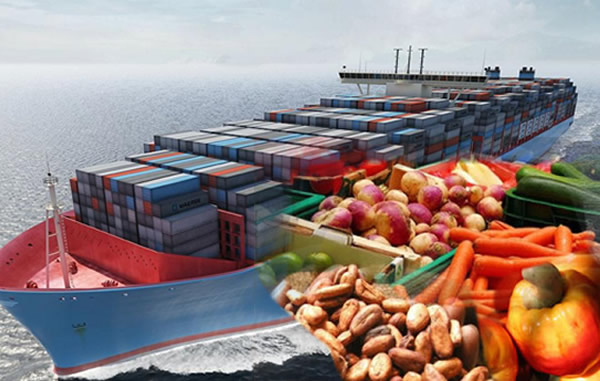The latest national accounts released by the National Bureau of Statistics (NBS) show that GDP grew by 4.0% y/y in Q3 ’21 compared with 5.0% y/y recorded in Q2 ’21.
This growth can be partly attributed to positive base effects, steady progress in stemming the spread of the coronavirus and resumption of economic/business activity. The oil economy contracted by -10.7% y/y in Q3 ‘21 compared with a contraction of -12.7% y/y recorded in Q2 ’21. Meanwhile, the non-oil economy grew by 5.4% y/y compared with 6.7% y/y recorded in Q2 ‘21.
In our chart, we highlight the top seven performing sectors in the non-oil economy, among those accounting for at least 1% of GDP.
The best performer was the finance and insurance sector which posted a growth rate of 23.2% y/y compared with a contraction of -2.5% y/y recorded in Q2 ’21. Meanwhile, within the sector, the financial institutions segment grew by 25.5% y/y compared with a contraction of -4.5% y/y in Q2 ‘21. This healthy improvement is also reflected in the strong performance of tier 1 banks as seen in their respective Q3 ’21 earnings report.
The second-best performer was the transportation and storage sector which grew by 20.6% y/y compared to 76.8% y/y posted in Q2 ’21. The sector contributed 1.0% to GDP. The major drivers of the sector were rail transport segment (59.9% y/y) and air transport segment (33.3% y/y). This was largely due to positive base effects and improvements in air and rail passenger traffic as global economies lifted lockdown measures. Road transport, which makes up 79% of the entire sector, grew by 21.1% y/y.
The trade sector grew by 11.9% y/y in Q3 ‘21 compared with 22.5% y/y recorded in the previous sector. The sector contributed 14.9% to GDP. We suspect that the release of pentup demand, particularly for consumers within the middle-income bracket may have supported trade activities.
The information and communications sector grew by 9.7% y/y in Q3 ’21 compared with 5.6% recorded in Q2 ‘21. Its major contributor, telecommunications, posted a growth rate of 10.9% y/y compared with 5.9% y/y recorded in the previous quarter. This expansion is mainly due to an increase in demand for voice, data, and digital services.
Additionally, entertainment via streaming services has picked up significantly and contributed to the segment’s growth.
The manufacturing sector grew by 4.3% y/y in Q3 ’21 compared with 3.5% y/y recorded in Q2 ’21. The sector contributed 9.0% to total GDP. Growth was significant in the chemical and pharmaceutical products segment (10.0% y/y), due to sustained demand for pharmaceutical products by the health sector. Its largest segment, food, beverages, and tobacco grew by 6.1% y/y, and the cement segment expanded by 5.7% y/y in Q3 ’21.
The African Continental Free Trade Area (AfCFTA) is expected to impact domestic manufacturing positively. However, to maximise the benefits of the agreement, local manufacturers need to significantly improve their service delivery and product standards.
The construction and real estate sectors grew by 4.1% y/y and 2.3% y/y in Q3 ’21 respectively. The growth registered in both sectors could be attributed to development activities on the back of recommencement of delayed projects which were paused due to the slowdown triggered by the pandemic. The World Bank has estimated that Nigeria would need to invest USD3trn in infrastructure to reduce the infrastructure deficit in the country.
Based on the FGN’s 2022 budget proposal, N5.4trn (USD12.9bn) has been earmarked for capital expenditure. From this allocation, N1.5trn has been set aside for expenses on infrastructure. This includes provisions for works and housing, power, transport, water resources and aviation.
Looking ahead, we expect growth of 1.5% y/y in Q4 ’21



 Naira4 weeks ago
Naira4 weeks ago




 Naira4 weeks ago
Naira4 weeks ago




 Naira4 weeks ago
Naira4 weeks ago




 Naira3 weeks ago
Naira3 weeks ago
 Commodities4 weeks ago
Commodities4 weeks ago


 News4 weeks ago
News4 weeks ago


 Banking Sector4 weeks ago
Banking Sector4 weeks ago
 Travel4 weeks ago
Travel4 weeks ago


















